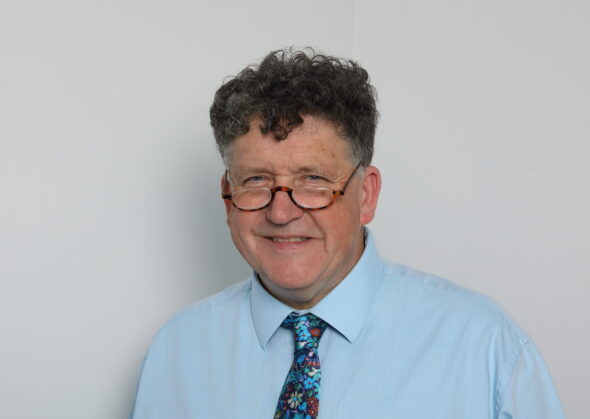Interviewer
All right. I’m sure there are many, but do you have a favourite memory from any of those programs, or any experiences at the One Tower Bridge Road Friends Group that you could tell us a bit about and that sticks out to you?
David Wood
Oh, I think there are a number of projects that have happened there over the years. So, one of the key things that falls within my remit as chair is to make sure that we’ve got enough money fundraised to pay for things. And, the most recent projects that we’ve delivered there- and we’re carrying on delivering at the moment – is something called Songs and Smiles, which is where young mums come in with their babies and they do what, in my day, would have been called a “Mum and Tots Group.” And the residents come down and they get to interact. So, that stuff really matters for me and that’s something that we fund and make happen. In terms of community engagement, my favourite bit to do with young people is that literally five minutes from the home is a school called St. Saviour’s and St. Olave’s, and we’ve had a long relationship with them and I regularly go in and chat to the head teacher or to a group of students or whatever. And the school has shown huge flexibility by allowing some of the sixth formers – it’s a girls school. So when they have free periods, they take time to go down to the home to befriend and spend time one-on-one. And I think my favourite activity as part of that is that on a Thursday morning, there’s been a tradition of people who can really only go out in wheelchairs, they would go out in a group and visit sort of a local coffee shop or a local centre. So what happens is that the girls who aren’t in lessons, for a couple periods just before lunch, they’ll go down, and you can have one or two members of staff, and a further eight wheelchairs go out. And they go out and they have coffee. And I can remember talking to Cathy. Cathy was one of the residents there. And you can tell this story stuck because it was before Covid. So it’s good five, six years ago. And, I asked Cathy, because Cathy was one of the people who enjoyed going out, and I asked her what it meant to her. She had some memory issues, so she said, “Well, on Thursday, I get up early,” and I said “Oh, why’d you get up early?” She said, “I get up early because I want to look my best. So she said, “I get up and I try and get myself ready and I call the carers in, and I get them to do my hair. And if somebody will help me, I want to put some lipstick on. And I make sure I’ve had my breakfast early. She said , “And then I get them to take me down to the big reception area. I get them to take me down in my wheelchair to the reception area.” She said, “And I’ve got my coat ready. And I hope that there’s going to be enough people that I can be included in the numbers that go out when they’re going to be pushed out.’ And she said, ‘I don’t get to go every week, because not every week, there are enough or there’s too many. And I know I have to be fair, and I can’t go. So I said, “So what happens when you don’t go?” And she said, “Well, I go back up to my room and I have a little cry.” And it’s so sad because you think it’s such a simple thing to get, you know, another couple of young volunteers to come in and push wheelchairs so that Cathy could – her big moment of the week is to go out. Just to go out for a couple of hours. So stuff like that, really, I find very inspiring that it’s not difficult. We don’t have to do a huge amount to change people’s lives.
